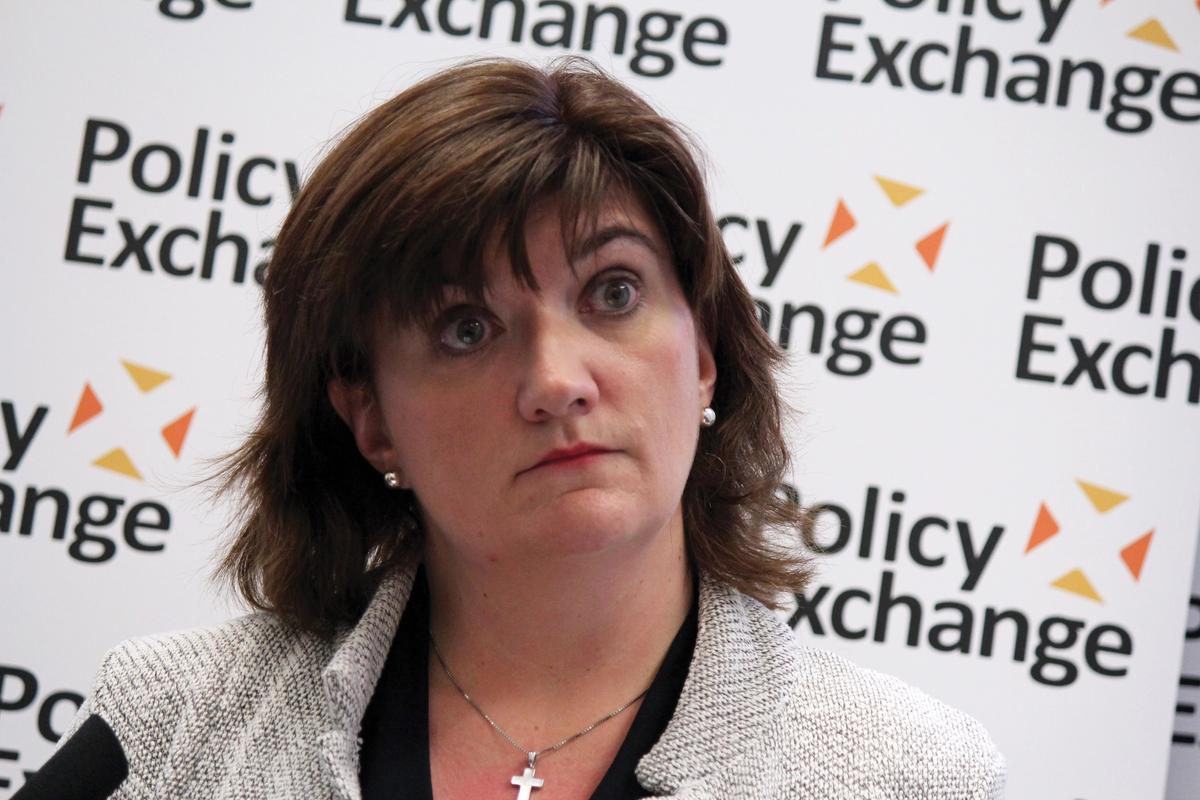In a surprise move, Nicky Morgan will be elevated to the House of Lords to continue as culture secretary in Boris Johnson’s cabinet, following his massive election victory last Thursday. It is 11 years since a prime minister appointed a secretary of state by making them a life peer.
To add to the surprise, Morgan had announced on 31 October that she would step down as an MP because she did not have enough time with her family. She also cited the abuse that is now commonly thrown at national politicians. Presumably, neither problem will go away if she continues as a secretary of state.
Just after her reappointment last night, Morgan said: “Well it turns out that leaving the cabinet is harder than leaving the EU!” Morgan is one of the few ministers in Johnson’s cabinet who supported remain in the 2016 European referendum.
The reappointment of Morgan, who for personal reasons did not seem to wish to pursue an intensive political career, has led to speculation that her reappointment could well be a temporary one, until Johnson’s expected major cabinet reshuffle in February.
Morgan, who had been appointed the secretary of state for Digital, Culture, Media and Sport (DCMS) by Johnson last July, was the 12th politician to hold the post in as many years—resulting in an unfortunate lack of continuity.
Johnson’s decision to hold onto Morgan is intensifying speculation that DCMS’s long-term future is now in doubt. Dominic Cummings, the prime minister’s chief adviser, believes that there are too many government departments and too many ministers in the cabinet. It is therefore possible that the DCMS secretary of state might lose their seat in cabinet—or even that the department could be abolished, with its four sectors integrated into other relevant departments.
For now, at least, serving under Morgan will be a minister for arts, heritage and tourism. Helen Whately, who was appointed on 10 September, could well continue in the post. An announcement is expected in the next day or so.
So how will the arts fare under Johnson’s new administration? The prime minister has a cultured background (and his partner, Carrie Symonds, took a degree in art history). Munira Mirza, a former deputy mayor of London responsible for education and culture, was recently taken on to head the Number 10 Policy Unit. But despite Johnson’s background and Mirza’s presence in Downing Street, the arts are very low down on the list of the prime minister’s priorities.
The most important election manifesto commitment for the arts is to the £250m culture development fund (£50m a year over five years), which had been announced in October. Half the sum is earmarked for regional museums and libraries. A further £90m will go the Culture Development Fund, which invests in heritage, culture and creativity, to drive regeneration. More specifically, York’s National Railway Museum has been promised £18.5m to restore its building and Coventry will get £7m to support its role as the UK’s city of culture in 2021.
Johnson remains committed to the Festival of Great Britain and Northern Ireland in 2022, backed with £120m of government money. Although once dubbed the “festival of Brexit” by Jacob Rees-Mogg, the Conservative MP and now the Leader of the House of Commons, the official brief is rather different, describing it as a festival of “creativity and innovation”, with events on “arts, culture, design and tech”.
But the real test of the government’s commitment to culture will be the Chancellor of the Exchequer’s 2020 comprehensive spending review. Last September, as an interim measure, the DCMS budget for 2020-21 was increased by a welcome 4.1% in real terms (after inflation), but the new review will be for a longer period, probably for four financial years.
Although Johnson is expected to increase public expenditure, most of this will go to health and education, so it remains unclear how culture will fare. His election manifesto pledged continued free admission to national museums, so the arts world is hoping that government grant-in-aid will keep pace with inflation.
One international cultural issue that is likely to come up is the long-running saga of the Parthenon Marbles. Given Johnson’s deep love of classical culture, the Greek government may see it as an opportune moment to intensify its campaign for the return of the sculptures. But the prime minister will almost certainly respond that it is a matter for the trustees of the British Museum, not the government.
Arts education is also a key issue, although it is primarily the responsibility of the department for education. The Tate had wanted to use its Steve McQueen Year 3 project and display to stress the importance of art for schoolchildren, but this was difficult to do directly during the election campaign. Today, however, the Tate called on the new government “to ensure all children have access to visual art through an arts-rich curriculum”, with visual art as a core part of the national curriculum in primary and secondary schools” and “additional funding”.
Finally, and most importantly, there is Brexit, which is due to take place by the 31 January deadline, followed by a transition period. As the Creative Industries Federation commented the day after the election, “leaving the EU is only a first step, and the coming months will see the working through of a huge amount of crucial detail”—with the immigration system being particularly important for the arts.


